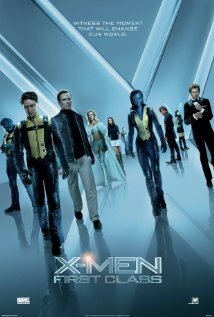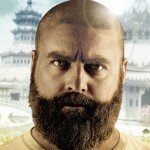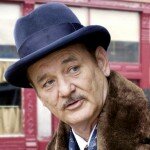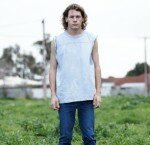When it comes to adapting a highly celebrated novel for the big screen, Australian director Steve Jacobs has the right attitude. “There’s no point in redesigning the wheel,” Jacobs says in regards to his faithful adaptation of J.M Coetzee’s novel Disgrace, which marks his first film since 2001′s AFI award winning comedy/drama La Spagnola. It’s sound thinking, especially when the ‘wheel’ in question was awarded the 1999 Booker Prize and was penned by a Nobel Prize winning author.
Set in post-apartheid South Africa, Disgrace stars the impeccable John Malkovich as a disgruntled Cape Town University professor David Lurie. After carelessly having an affair with one of his students and losing his job, David decides to take refuge on his daughter Lucy’s (Jessica Haines) farm on the Eastern Cape. But the balance of power in the country is shifting. In the aftermath of a vicious attack on the farm, he is forced to come to terms with more than his ‘disgrace’ alone.
What results is a deeply engaging character driven story that superbly depicts the issues plaguing South Africa and beyond. Yet no matter how strong the source material might be, the process of translating pages of text into something that works cinematically isn’t easy. In fact, it’s one of many challenges Jacobs faced when bringing the novel Disgrace to life. I talked to Jacobs about the pressures of adapting a prized novel, the difficulties of filming in a foreign country and the issues he and producer/screenwriter Anna Maria Monticelli had with receiving financing for the film.
—
CUT PRINT REVIEW: What initially attracted you to the idea of adapting Disgrace into a film?
STEVE JACOBS: It was Anna’s [producer/screenwriter] idea at first. I read the book and loved the book, as she did. It’s a magnificent piece of literature, with wonderful characters and an unsentimental approach to difficult issues and people. You’re automatically attracted to something which has that sort of excellence.
CPR: Having read Disgrace a few years back, watching the film almost felt like Déjà vu; it’s an incredibly faithful adaptation! What was the motivation for keeping it so faithful to the novel?
JACOBS: Well because it’s such a great book, I didn’t want to make a bad film of a great book! (Laughs) The book is great for a reason; so our journey was to always remain respectful of the book and to what we felt was the intentions of the novel. We wanted to do it not as a homage, because things have to be catered for the cinematic format, but we did want to keep faithful to something that we believed was, well, right. There’s no point in redesigning the wheel; it already works, so all we wanted to do was make it work cinematically.
CPR: How involved was Coetzee in the whole process?
JACOBS: Mr. Coetzee had approval over the script, so that had to be done before we could proceed. He saw our film La Spagnola and appreciated that. I think he believed that we would not shy away from some of the issues in Disgrace, because we executed the mother-daughter relationship in La Spagnola with quite a clinical and, in a way, objective and sentimental eye. Although he wasn’t involved in the project once we got approval of the script.

|
CPR: The South African setting in Disgrace really is an influential character of its own. That said, many filmmakers will opt for a more local location alternative when it comes to filming. What was your reasoning for actually shooting the film in South Africa?
JACOBS: Well, there were really two reasons why we went to South Africa. Anna and I felt that we wanted to keep as much authenticity as possible in the film. We really went the hard yard for the film because, as filmmakers and artists, we’re putting integrity into the piece. So even though it was inconvenient and costly, we went [to South Africa] because we felt that it would help the final product. Although, the compromises that are necessary in filmmaking to actually go to South Africa was important to consider; we perhaps could have done it in South Australia, or somewhere like that. But we were assured that we would get a rebate of our expenditures in South Africa, but unfortunately the government changed their mind and didn’t give us the rebate! (Laughs)
CPR: Wow that must have been a big blow. What about the South African government; were they at all supportive given the film takes a critical, but honest, look at the nation?
JACOBS: We tried for quite a few years to actually get funding from South Africa, but it was unsuccessful. If it did come, it came at the cost of losing creative control and we weren’t prepared to let other people take over. As artists, we wanted to make sure our work had the integrity we wanted it to have. Although I have to say though that the South African crew were absolutely outstanding. It’s an iconic book in their country and the people who worked for us were right behind it and wanted it to be made. They knew it was a difficult project and put their full support behind it, so it was very inspiring.
It’s just unfortunate that there is not one dollar of South African money in the film, and when we didn’t get the rebate from [the Australian] government, that was a further disappointment.
CPR: So how did you end up funding the film?
JACOBS: Well the film is a ‘10BA‘ film.1 It’s considered an Australian film, which we went through the taxation department to get that classification. Screen Australia also thought it deserved funding, because it was going to show off the abilities of many Australians behind the camera and a few in front of it. Fortunately for us, they believed it was an opportunity for Australians to make a film that was in demand around the world – a property that was sought after. So it really was one of those lucky coincidences that came into our laps where Screen Australia had the foresight and wisdom to back us.
CPR: The film does deal with a lot of sensitive issues relating to post-apartheid South Africa – racism, rape, the abuse of authority and even animal cruelty. Do you feel as though this film specifically speaks about the situation in South Africa or can these themes be applied on a universal level?
JACOBS: It’s definitely universal. I mean, that’s why the book is done so well. I believe films like this could be done in areas that have been through long traumatic periods, like Palestine or Northern Ireland or the Balkans.
CPR: Even Australia in regards to the Stolen Generation…
JACOBS: Yes, there are many aspects similar – racism and dominance of authority. You know, anywhere where rivalries and histories have locked people into conflict that can’t be resolved. So when I read the book I didn’t solely think “oh, this is about South Africa”. Of course, it does focus on aspects of the country, but I’m not qualified, nor would I ever presume to be, to make a statement about South Africa.
The great thing about Coetzee’s novel is that it puts up in a believable context so many issues. So many issues. These characters are drawn in fashion that is neither good nor bad; they are just human beings placed in these circumstances. Like all great pieces of literature, the book has a universal quality to it and that was why we wanted to make it. So really, anyone can interpret it in any way they like, and they should because that’s what great art is all about.

|
CPR: David Lurie is a fascinating choice for a protagonist because, let’s be honest, he’s a bit of a bastard! Were you ever worried that audiences wouldn’t take to his character?
JACOBS: Our job was to make the David Lurie come alive from the book. Obviously, he worked in the book! Readers really identified with him, or maybe not by him but maybe his scenario. Whatever it was, they weren’t turned off by his character and didn’t put the book down. Well, some people might of, but a majority of critics supported the nature of his character. So our job was to actually reflect what was in the book. We felt that if we reflected that honestly, the audience would follow, as they did in the book, this flawed, human character. One who’s not all bad, but not all good.
CPR: I don’t think any actor is more suited to the role of David Lurie than John Malkovich. Did he instantly spring to mind?
JACOBS: Basically, he did! He knew the book, he liked La Spagnola, and he liked the script. So I met him in Los Angeles and he then came onboard!
CPR: It’s certainly a challenging role for any actor to undertake. He undergoes a great deal of change…
JACOBS: Yes, well, people are paradoxes; they don’t sort of wake up one morning and go all blue or all green or all pink! John is wonderful in the role because he shows the complexity of David. Because human nature is complex after all.
CPR: I hear that it took an extensive run of auditions before you gave the role of Lucy to newcomer Jessica Haines, who is fantastic in this film. What was it about her audition that landed her the role?
JACOBS: You know, it was her honesty. She portrayed the strengths of the character with complete conviction, that wasn’t fake. We needed the audience to really believe that this character existed -to do so many heroic, or foolish, acts. If we had someone that wasn’t true, or wasn’t a great actress, then the whole film would fall flat.
So really, she was the pivotal role; Lucy is the protagonist. David Lurie just reacts; he doesn’t take control of the situation, she does. So the situations she’s put in and the decision she makes have to be done convincingly and Jessica understood that. She understood why she stayed [after the attack]. She understood the nature of her connection with the land and the sacrifices that were necessary. That made her the best, by far, of all the actresses we auditioned.
CPR: Eriq Ebouaney’s performance as Petra is also worth a mention. I’ve always found Petra to be the most fascinating character. There’s so much ambiguity surrounding him, especially regarding his involvement in the attack on Lucy and David.
JACOBS: Yes, I think Eriq does a fantastic performance. It’s very difficult to do that; to have the suggestion of being responsible on the inside, but on the outside it’s a different story. He’s a wonderful actor.

|
CPR: You were an actor for many years before making the switch to directing. Do you feel that this has had an effect on the way you approach directing?
JACOBS: Not really. I try and have all the issues about the performance out of the way before we start shooting. There is a rehearsal period where we try and discuss what we are planning to do. I don’t believe in performing in rehearsing, but I do believe in discussing it. Then we get to the set and then we have to do it. I believe in spontaneity; giving people the responsibility to come up with the job we ask them to do.
CPR: Is acting something you want to get back into?
JACOBS: I don’t think I’ll get back into acting… It’s too hard!
CPR: (Laughs) Really? I thought it was the opposite; directing looks like the harder job!
JACOBS: (laughs) No no, it is the opposite. Directing is really hard, but I won’t be going back into acting. We already have another project, a comedy, which we are currently getting together. So hopefully that will be next.
CPR: Should we be expecting something along the lines of La Spagnola?
JACOBS: It won’t be in the same vein as La Spagnola, it’s a contemporary comedy about Western societies and the nature of truth.
CPR: Sounds interesting, anything more you’d like to add?
JACOBS: Well, I hope it’s funny! That’s all i’ll say! (laughs)
CPR: Thank you for your time Steve and best of luck with the film as it comes home to Australia. I think you’ve done fantastic job at bringing to life such an intricate, much loved, novel.
JACOBS: Thank you! I’m glad it didn’t disappoint. We’re finding people who know the book, even academics and Coetzee specialists, have enjoyed the film. Which is very gratifying. So thank you so much.
Disgrace is released in Australia on the 18th of June, 2009.
——
1 A 10BA was an Australian tax incentive that gave investors in Australian films the ability to claim back 100% of the money invested during the next tax return. Deemed ineffective, it has since been replaced by the Producer Offset, which offers Australian filmmakers a 40% rebate on production expenditures.
 Follow the author Anders Wotzke on Twitter.
Follow the author Anders Wotzke on Twitter.










